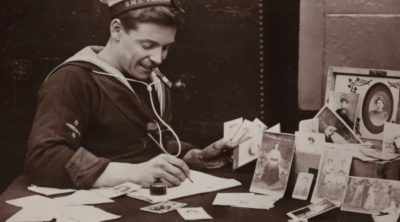Classic science fiction books hit a childhood sweet spot that few genres can match. Whether you want to soar to the stars or experience the wonders of manmade science, science fiction jumpstarts young imaginations and offers the rest of us a vacation from our homebound, busy lives.
Read on to learn about 3 classic science fiction books that remain classics of the genre. Whether you want to expand your intellect or go on an exciting adventure, these books earn their status as staples.
Childhood’s End by Arthur C. Clarke
Arthur C. Clarke remains a famous “grandfather” of science fiction due to his contributions to both science and to literature. He is responsible for the schematics that led to the creation of Sputnik, the first man-made geosynchronous satellite, as well as the story and screenplay that became the film, 2001: A Space Odyssey. Childhood’s End may not be his most famous work, but it may be his best.
The title refers to our development as humans, to the way we see ourselves in our universe. A jolt of evolution raises our view of space and time, thus accelerating our awareness. We begin to see the stars, distant worlds, higher planes of consciousness, and other beings. Childhood’s End represents science fiction optimism at its finest.
The Moon is a Harsh Mistress by Robert A. Heinlein
Science fiction doesn’t always concern aliens and robots. The genre also has an incredible capacity for philosophy. The Moon is a Harsh Mistress taps into Heinlein’s love of constitutional politics to portray a civilization on the moon in the near future.
The penal colony consists of humans transported to the moon for detainment. However, after many decades, the children of those prisoners remain citizens of the colony. What are their rights? No one knows until a prisoner and a computer AI create a new constitution for the moon, with social, political, and philosophical consequences.
Those interested in history and politics with a science fiction twist should seek out this classic.
I, Robot by Isaac Asimov
I, Robot has been made into films, fantasy art, and also fan-fiction. The original remains a testament to its author’s genius and scientific knowledge. Asimov, the third and perhaps most famous of the grandfathers of science fiction, wrote this series of short stories to describe permutations of the problems (and benefits) of AI in the near future.
In the process, he coined the term “robotics” to refer to miniaturized machines the way we now think of them. Before this, no one had considered that machines could shrink in size and increase in power. The stories range from the question of artificial suicide to the social implications of automation. They are also all must-reads.
The Takeaway
Classic science fiction books can easily scratch an itch for homebound dreamers. Therefore, these 3 classics show the full range of the genre’s history from its 3 most venerated masters. Adventure as far as the stars and as near as human consciousness with these sci-fi greats that you should add to your reading list today.


